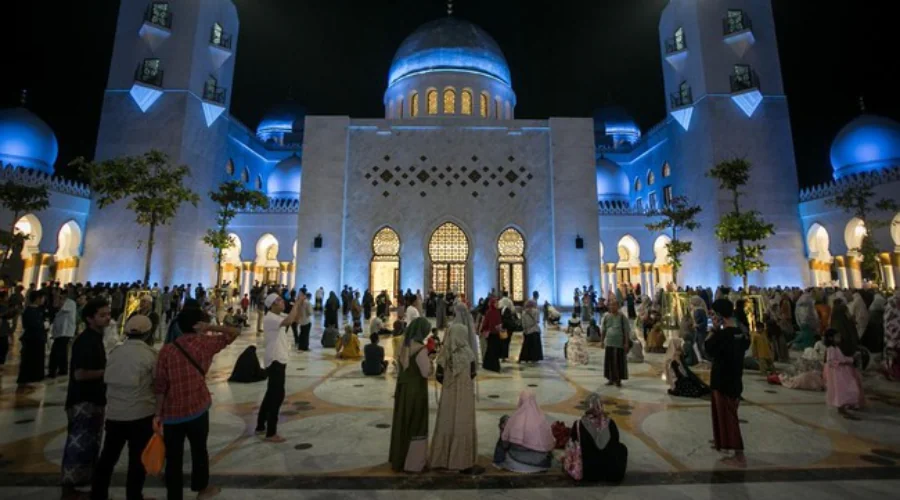
- 13 Apr
- 2023
Ilustrasi gambar :(ANTARA FOTO/Mohammad Ayudha)
FAI UM Surabaya Lecturer Shares Tips for Maintaining Consistency of Tarawih Prayers in the Month of Ramadan
One of the sunnah worship that is enthusiastically welcomed by Muslims is the tarawih prayer. The priority in carrying out the tarawih prayer itself is very large, namely getting forgiveness of sins. In this case, Rasulullah SAW said;
"Whoever worships (tarawih) in the month of Ramadan with faith and sincerity, then his past sins are forgiven" (HR al-Bukhari, Muslim, and others).
The scholars agree that the word qâma ramadhâna means tarawih prayer. Strictly speaking, this hadith motivates Muslims to perform prayers which can be said to be exclusive worship in the month of Ramadan. Even the promised reward is the forgiveness of sins, as long as a person is sure of his virtue and lives it with sincerity. (as-Syirbini, Mughnil Muhtaj, tt; juz 1, p. 459)
Thoat Stiawan, a lecturer at the Faculty of Islamic Religion (FAI) UM Surabaya, said that at the end of Ramadan, sometimes human faith goes up and sometimes it goes down. The ups and downs of one's own faith can be detected through the spirit of one's worship. The more active he is in worship, usually the higher the dose of his faith. On the other hand, if the worship begins to fade, it is a sign that the dose of faith has decreased.
Likewise in the reality of the implementation of tarawih prayers that occur in society. The first week until the middle of Ramadan, maybe the volume of worshipers is still crowded, but as soon as it enters the last half of the month, let alone approaching Eid al-Fitr, the number of worshipers slowly declines. Previously, a tarpaulin had to be placed in front of the prayer room to accommodate the overflowing congregation, now sometimes the inside of the prayer hall is not full.
The reasons also varied, ranging from personal activities to predictable ones such as preparing for the arrival of Eid al-Fitr at home: making various kinds of Eid cakes, decorating the house to other activities.
"In fact, if we really understand how great the reward is for Muslims in maintaining the consistency of the Tarawih prayers, of course, the closer Eid Al-Fitr should be, the more enthusiastic the Tarawih will be, as well as other services," Thoat said Thursday (13/4/23)
Thoat explained, in one of the pieces of his hadith, Rasulullah saw said; "Indeed, a man who performs prayer with the Imam (congregation) until it is finished, then for him is calculated the reward of one full night's worship." (Narrated by Abu Dawud)
The hadith above explains that people who pray in congregation and don't disperse until the priest finishes, then he will get a reward worth worshiping for one full night, counting the obligatory and sunnah worship. Imam Abu Dawud in his Sunan records the hadith above in the chapter on the virtues of performing prayers in the month of Ramadan. (Abu Thayyib Abadi, 'Aunul Ma'bûd, 2017; juz 2, p. 168)
That is, if the context of this hadith is applied to the tarawih prayer, then whoever performs and consistently performs the tarawih prayer until it is finished with the priest, he will get 2 things including:
First, the reward is equivalent to living one night full of worship. Not to mention the night of Ramadan, surely the reward is greater than the other nights.
Second, if someone consistently maintains the tarawih prayer for a full month during Ramadan, a lot of rewards will be obtained, including reaching a night that is more important than a thousand in this month.
So that later we will get forgiveness of sins. Get a reward equivalent to living one full night by worshiping during the month of Ramadan. And have the opportunity to reach the night of Lailatul Qadar in the last ten days.










(0) Comments